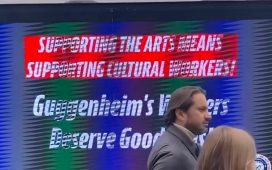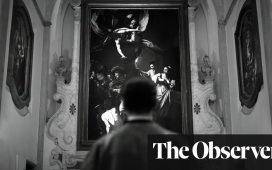Identifying details of the Afghan interpreter are carefully obscured, but his portrait is still etched with the story of his life.
The interpreter, who cannot be named, was 18 when he joined the British army’s war against the Taliban. He learned English as a child in Kabul by reading old English-language newspapers, then searching for new words in a yellowed Cambridge dictionary.
In 2011, he began to patrol alongside British troops, helping soldiers to communicate with occupied Afghans in the Nad Ali district. He would then listen to and translate Taliban radio chatter, providing interceptions that proved vital in anticipating Taliban attacks.
Doing so put him in grave danger—for his cousin had joined the Taliban. A friend who worked for the US military had been killed by the Taliban, his body left for his family to find. While on patrol with the army, the interpreter was recognised by a childhood acquaintance. His cousin, and thus the Taliban, were informed. He was now a marked man.
The interpreter’s service for the British army lasted for just shy of a year. He returned to Kabul and found work as an English teacher, helping young Afghan women learn the world’s most spoken language.
But it became clear that he—and, increasingly, his family—were under threat. So, in 2013, he fled, leaving his family and wife-to-be in Kabul. He made it first to India, where he waited tables under an assumed identity before, finally, arriving in Derby in the British Midlands, where he sought asylum.
To this day, the interpreter’s fate remains unclear. The fact that he served for just less than a calendar year, and came to England via India, meant he does not meet the criteria for the government’s Afghan Relocations and Assistance Policy. His family remains in Afghanistan and is now forced to live in hiding under Taliban rule once more.
Deep entanglement
Andy Barnham, a London-based photographer and former British Army officer, has met and photographed many UK-based Afghan interpreters with comparable stories. But all of their identities have been hidden. “When I started the project, there was clear threat to life to the interpreters due to their service,” he says.
Barnham’s new series, called We Are Here Because You Were There: Afghan Interpreters in the UK, explores “the deep entanglement between the UK and Afghanistan, and the way it has shaped these Afghan interpreters’ lives from childhood or early adulthood,” he says.
Barnham made the decision to shield the interpreter’s names and identities via production techniques, lest they be seen by a newly digitally literate Taliban, who now once again forcibly govern the state of Afghanistan. He instead shot and edited his subjects “in a manner that helps anonymise the interpreters who have family in Afghanistan still under threat”.
There is a fine balance between personality, emotion and identification
Andy Barnham, photographer
“With the situation in Afghanistan having clearly changed, there is an impact on how I present the portraits,” he says. “It is now vital that the identity of those who I have photographed is protected.”
Each portrait is a composite of up to a dozen frames taken from various directions, sizes, opacities and angles. Barnham then blurs, pixelates and merges each frame to present a final portrait.
“Overlay the portraits too well and the person is clearly identifiable,” he says of the process. “Overlay the portraits badly and the final result is a mess. There is a fine balance between personality, emotion and identification.”
Barnham worked closely with Sara de Jong, a politics lecturer at the University of York and co-founder of the Sulha Alliance, an organisation that campaigns for the rights of Afghan interpreters who worked with the British Armed Forces and now wish to settle and build a life in the UK.
Personal story
De Jong conducted a total of 75 interviews with Afghan interpreters, asking them to share why they chose to work for the UK military, their experience on patrol in their own country alongside British soldiers, the threats they now face in Afghanistan and their early experiences as asylum seekers in the UK. Barnham captured his portraits at the end of each interview. His photography will be exhibited alongside direct quotations selected by De Jong.
The story is personal to Barnham; his mother fled the Viet Cong during the Vietnam War, before arriving in the US as a refugee. He discovered photography while serving as an officer in the Royal Artillery, and can trace this experience back to mentoring Afghan National Army soldiers in Helmand Province in 2008.
“Many interpreters suffered injury via gunshot wounds or IEDs [improvised explosive devices],” Barnham notes. “Few were given compensation, and many had to spend their earnings on medical treatment to overcome wounds caused as a result of serving with us.”
Negotiations are under way to exhibit the series at the British Houses of Parliament. “While they may not officially have been in the army, the interpreters wore our uniform,” Barnham says. “I think it is only fitting to recognise this service.”









